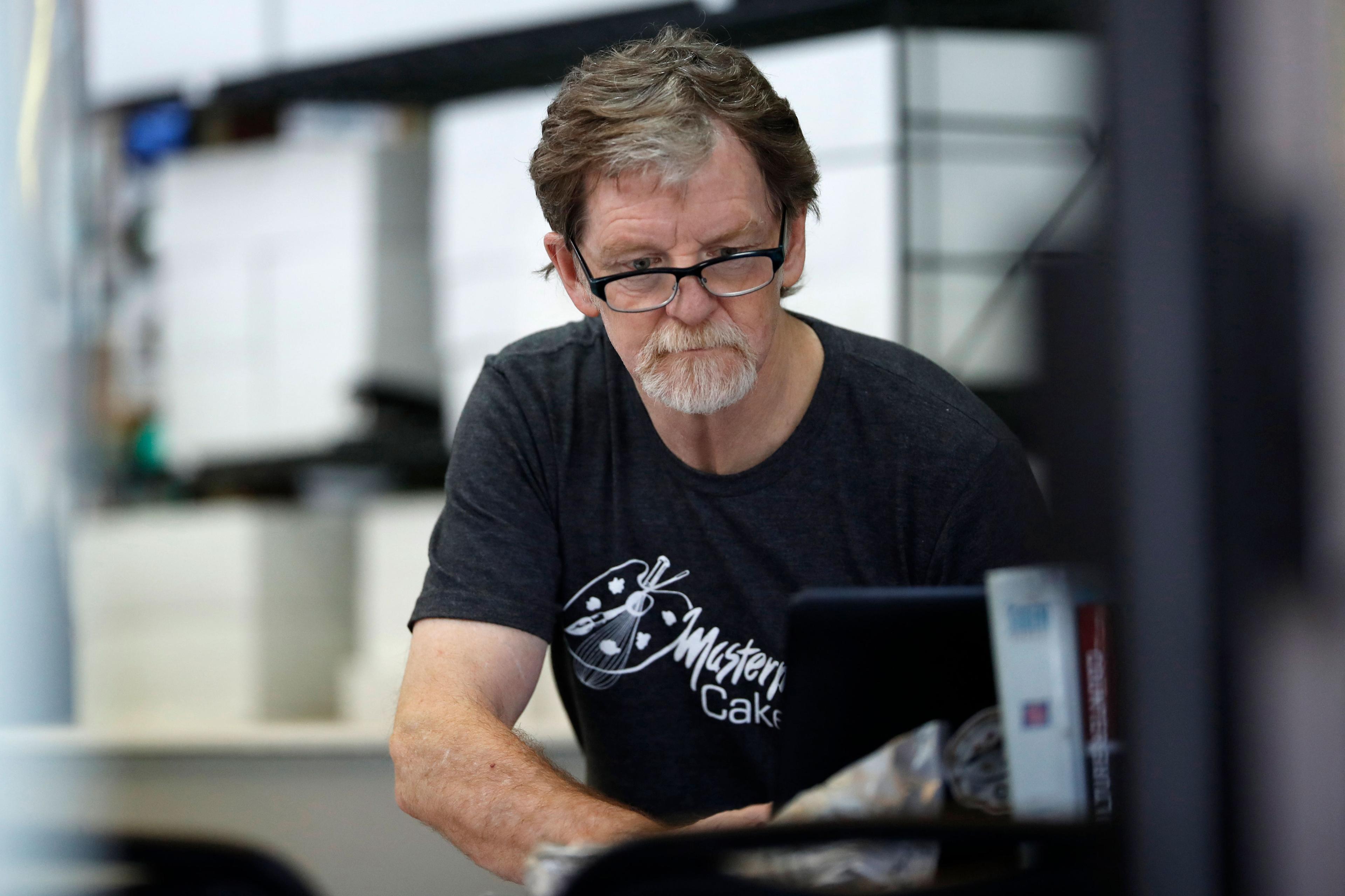
The cake in question was ordered for a birthday. The woman who called Masterpiece Cake Shop to ask for it wanted pink on the inside, surrounded by a layer of blue frosting. She explained to the shop employee it was to honor her gender transition.
At that point, the woman at the shop said they likely could not make it.
And that’s how Jack Phillip’s second, possibly precedent-setting, court case began.
The day of that phone call, the U.S. Supreme Court had just announced it would hear a lawsuit against Phillips for refusing to make a wedding cake for a same-sex couple.
In that case, Phillip argued he should not be compelled to use his artistic talents to create works in support of things that run counter to his Christian beliefs. He said his shop would serve LGBTQ customers in other ways — making brownies or cookies or regular cakes — but not wedding cakes.
Autumn Scardinia, the trans woman who called requesting the birthday cake, said in the subsequent court case she was seeking to “challenge the veracity” of that statement, and potentially “call [his] bluff.”
This week a Denver District Court sided with Scardinia and ordered Phillips to pay a $500 fine for violating Colorado’s anti-discrimination laws.
“Jack Phillips serves all people but shouldn’t be forced to create custom cakes with messages that violate his conscience,” said Kristen Waggoner, lead general counsel with Alliance Defending Freedom, the group defending Phillips in court. “Radical activists and government officials are targeting artists like Jack because they won’t promote messages on marriage and sexuality that violate their core convictions.”
But in making his ruling, the judge found that Phillips’ refused to make the cake because Scardinia is trans, a protected class under Colorado discrimination law, and not simply because of the message she wanted the cake to convey.
“Defendants admit that they were willing to make the requested cake until Ms. Scardina identified that she chose the colors to reflect and celebrate her identity as a transgender female,” judge A. Bruce Jones wrote in his ruling. “Defendants are, however, willing to make cakes for non-transgender individuals that reflect that person’s gender. And Defendants would 'gladly' make an identical-looking cake for other customers.”
The judge rejected the argument Phillips’ attorneys made that he doesn’t discriminate because he’s willing to provide some types of baked goods to LGBTQ people, and has done so in the past.
“Defendants have a religious objection to making cakes that reflect the identity of LGBT people — as LGBT people — including cakes that recognize same-sex relationships, cakes that recognize gay pride, or cakes that recognize transgender status. Defendants’ willingness to serve the LGBT community in some circumstances is premised on a 'limited menu' offering that courts have repeatedly rejected,” the judge concluded.
Phillips' attorneys say they will appeal the case.








